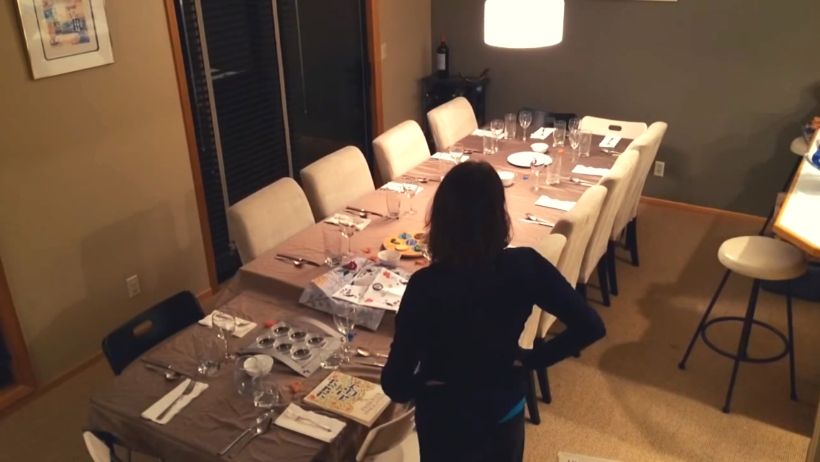I have a love-hate relationship with Passover. This isn’t because of the cooking, cleaning, separate dishes, or any other preparation. But because Passover only comes once a year, past holidays stick out in my memory. My mind has this way of reliving the painful memories along with the joyous ones.

I have vivid memories of Passover, starting from when I was five and received a plastic toy camcorder, and I recorded Elijah coming into the house for his wine. Seders were a time of celebration and family coming together. We’d host as many as 35 of my relatives for a seder, and my father would spend months (literally) preparing a new game and working to make the seder fun. We’d laugh, sing out of key, and have the best time telling the story of our history.
As the years went by, my grandparents passed away, and the seder, while still fun, marked the years and the losses in our family. By far the most painful seder was the one the year after my father died. The seder was his gift to our family each year. No matter how ill he was in past years, somehow he managed to pull it together to create an experience that everyone looked forward to (perhaps even my mom, who still did the cooking and cleaning and preparation).
But the year after he died, the seder was excruciating. A part of me wanted to cut myself off from the entire holiday. It’s hard to find personal space when the whole family is together, and I needed space from an experience I know would be raw, painful, and generally emotional. It turns out there’s a biblical precedent for this feeling, and it comes in this week’s Torah portion, Bo. Parshat Bo details the Exodus from Egypt. The Israelites are a traveling people, and in Parshat Bo the Israelites are steps away from leaving Egypt. Pharaoh again refuses to allow the Israelites to leave, and each of the three refusals brings with it one of the three final plagues. The narrative continues with the procedures for leaving Egypt, including putting the lamb’s blood on the doorpost, packing up, and recreating these events by celebrating Passover in future generations.
Among the laws of Passover, chapter 12, verse 15 teaches, “For whoever eats leavened bread from the first day to the seventh day, that person shall be cut off from Israel.” This may sound like a harsh sentence for simply eating bread; however, Passover is the fundamental story of Jewish identity. Its celebration and the purpose behind it are what it means to be Jewish. To not celebrate is to cut yourself off from the narrative of our people, to disregard the experience of moving from slavery to freedom.
Of course it’s important to note that everyone celebrates Passover in their own way. And, as was the case for me, personal emotions and situations may make the experience painful and make you want to step back from your community. What I’ve come to learn, especially now that I have children of my own, is that the celebration is so much bigger than me. Despite the challenges we may face, I’m part of a larger, longer narrative, and the celebration of that is what I want to pass on to the next generation.
– Rabbi Eve Posen



